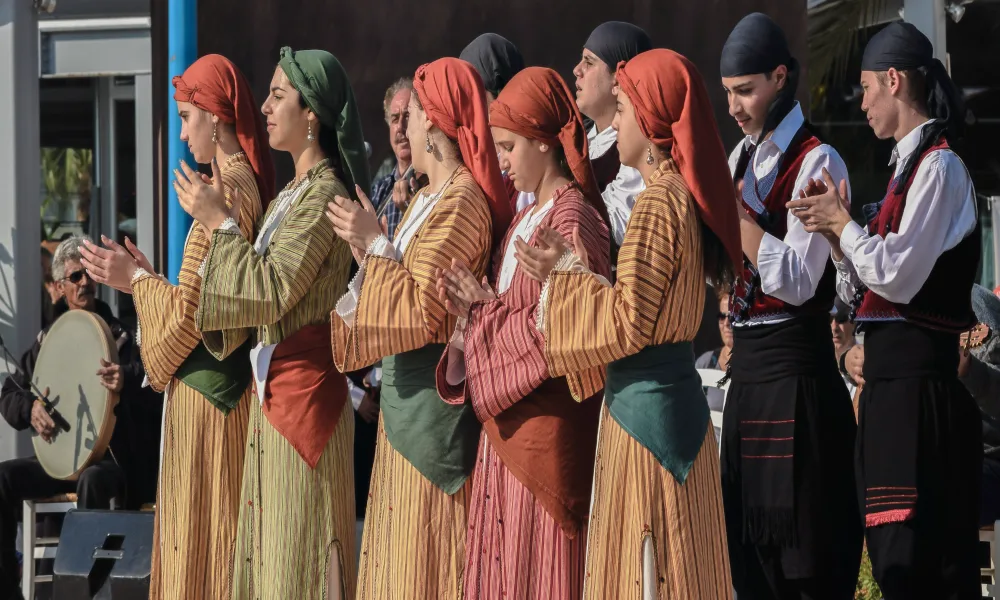Cyprus, an island nation steeped in history and rich in cultural heritage, offers a unique blend of traditions and customs that are both intriguing and essential for visitors to understand. As travelers increasingly seek authentic experiences, understanding Cypriot culture, etiquette, and traditions becomes crucial for meaningful and respectful interaction with locals. This guide aims to educate attendees about the nuances of Cypriot culture, ensuring a harmonious and enriching visit.
Understanding Cypriot Culture
Cyprus, with its strategic location at the crossroads of Europe, Asia, and Africa, has a diverse cultural tapestry influenced by various civilizations over millennia. The Cypriot culture is a harmonious blend of Greek, Turkish, and other Mediterranean influences, reflecting in its customs, cuisine, and daily life.
Greetings and Communication
Cypriots are known for their warm and hospitable nature. A handshake accompanied by direct eye contact is a common greeting. However, once a relationship is established, expect more affectionate greetings like hugs or kisses on the cheek. In conversations, Cypriots value politeness and respect, especially towards elders. Familiarizing oneself with simple Greek or Turkish phrases, depending on the region, is appreciated and shows respect for local customs.
Dress Code and Behavior
When visiting religious sites, such as churches or mosques, it’s important to dress modestly. This typically means covering shoulders and knees and removing hats. In general, Cypriots dress smartly but casually. However, a more conservative approach in dress is advised, especially in rural areas.
Dining Etiquette
Cypriot cuisine is a vital part of the cultural experience. When invited to a Cypriot home, it’s customary to bring a small gift, like sweets or wine. Meals often start and end with a toast, usually led by the host. It’s polite to wait for the host to initiate eating. Sharing food is common, reflecting the communal and hospitable spirit of the culture. Remember to compliment the cook and to leave a small amount of food on your plate, signaling that you were well-fed.
Local Traditions and Celebrations
Cyprus is home to a plethora of festivals and celebrations, deeply rooted in its history and religious traditions. These include Orthodox Christian and Islamic festivities, reflecting the island’s diverse religious heritage.
Religious Festivals
Easter and Christmas are major Christian celebrations, marked with special services, family gatherings, and traditional food. For the Muslim community, Ramadan and Eid are observed with equal fervor. Participating or observing these traditions respectfully can be a profound cultural experience.
Traditional Music and Dance
Traditional Cypriot music and dance are integral to local festivities. The famous ‘Sirtaki’ dance, though of Greek origin, is popular in Cyprus. Attending local music and dance events provides insight into the island’s rich cultural heritage.
Tips for Respectful Cultural Interaction
- Learn basic phrases in Greek like “Yiasou” (Hello), “Eycharisto” (Thank you), “Yiasou” (goodbye).
- Respect local customs and traditions, especially in religious contexts.
- Dress modestly when visiting religious sites.
- Be punctual and polite in social gatherings.
- Show interest and appreciation for local cuisine and traditions.
Conclusion
Visiting Cyprus is an opportunity to immerse oneself in a culture rich in history and tradition. Understanding and respecting local customs and traditions is key to a fulfilling and respectful visit. This guide serves as a starting point for travelers to engage with Cypriot culture in a way that is both informed and considerate, ensuring an experience that is both enriching and respectful.
This article aims to provide a comprehensive overview of Cypriot culture, etiquette, and traditions, enhancing the visitor’s experience and promoting respectful cultural exchanges. For a deeper understanding and more immersive experiences, engaging with local guides and participating in cultural events is highly recommended.

